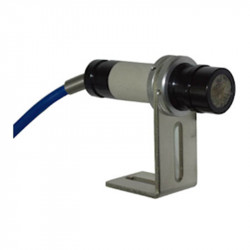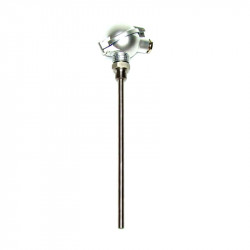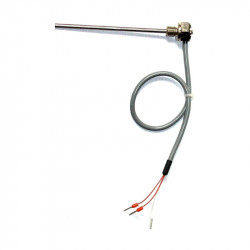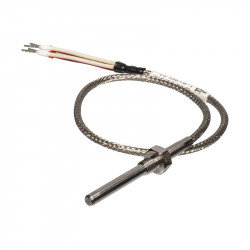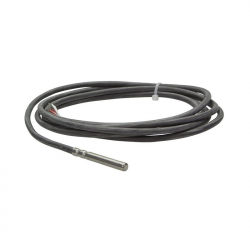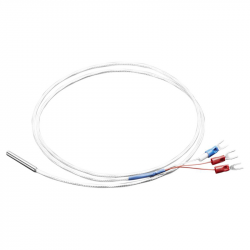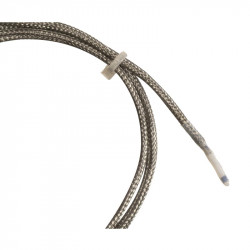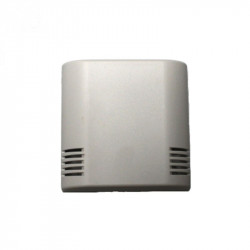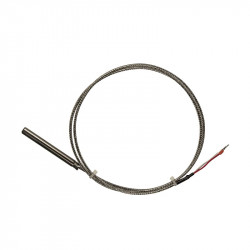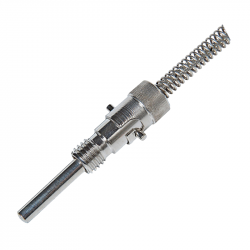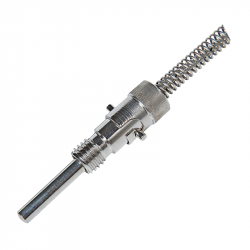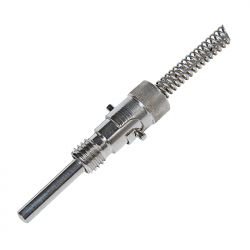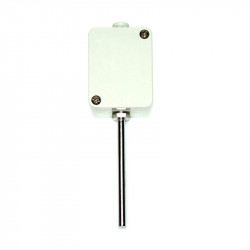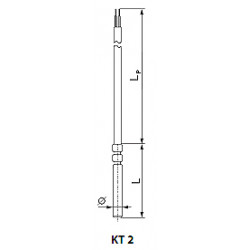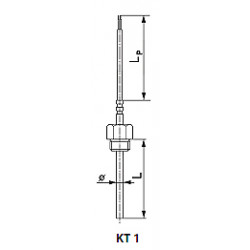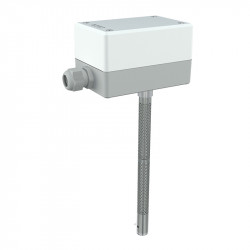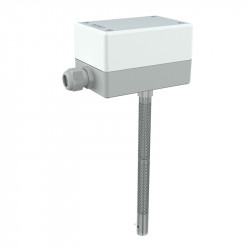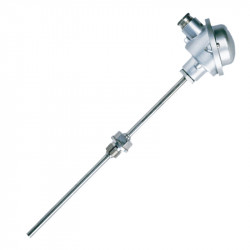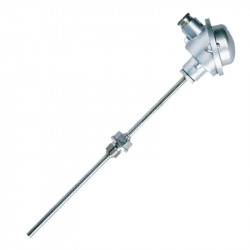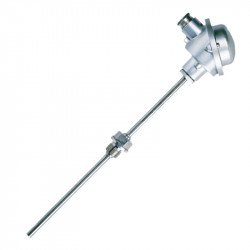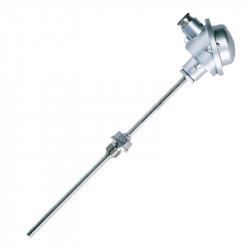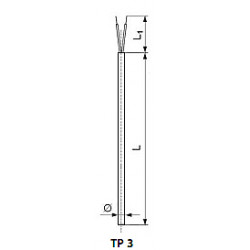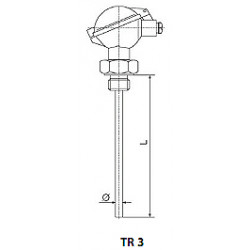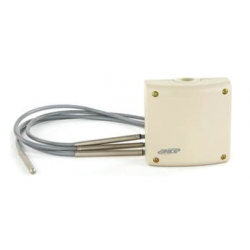Vous devez être connecté
Capteurs industriels de température
Catégories
In our extensive assortment of industrial sensors for automation, we're offering a wide choice of industrial temperature sensors e.g. various types of thermocouples and resistance sensors.
Temperature measurement is one of the most important actions in automation - in industrial conditions, the most commonly used are thermocouples and resistance temperature sensors.
Thermocouples - application
Thermocouples, also called thermoelectric temperature sensors, are one of the most popular solutions in the industry. Their main applications include laboratories, transportation, measuring-control apparatus, data systems, multi-channel devices, thermovision systems, and military equipment.
Benefits of thermocouples:
- low price,
- simple, stable, and faultless construction,
- predictable output voltages,
- possibility to use in chemically aggressive environments,
- wide range of temperatures, from -100°C up to over 2500°C
- highly precise measurement.
Types of thermocouples and their applications
For thermocouple's construction, various types of metals are used, from which each is intended for a different application.
- E type - alloys for temperatures from -200°C to 871°C. Used in atmospheres from vacuum to slightly oxidative and in low temperatures.
- J type - alloys for lower temperatures (0°C to 600°C). Used in the chemical industry.
- K type - industrial standard up to 1250°C.
- T type - alloys for temperatures from -200°C to 350°C. Common in the food industry.
Applications of temperature sensors
- temperature measurement of cooling factors and hydraulic oils.
- recording and regulating furnaces, central heating devices.
- in passive buildings, households, air conditioning systems, laboratories, food industry, and agriculture.
C015 series is a contactless sensor for temperature measurements of the surface with an inbuilt circuit of automatic compensation of the air near the examined surface and the actual temperature of this surface. Used for measuring the temperature of rolls, driver strings, plastic sheets, etc.
Pt100 sensor is a temperature sensor made from platinum (= Pt_) with 100om (= _100) in 0 °C.
Characteristics of resistance sensors:
- more precise and stable than thermocouples,
- no need for cold ends compensation,
- typical copper wires can be used for extending measuring cables,
- more expensive than thermocouples.




